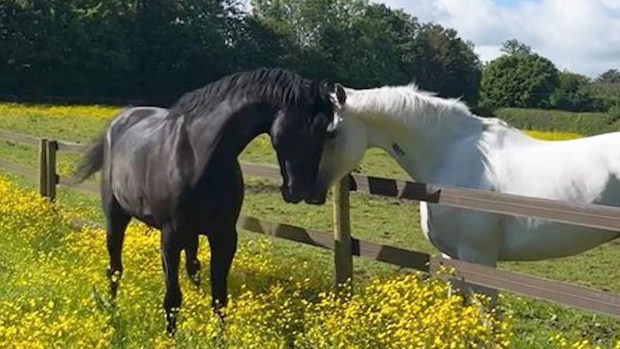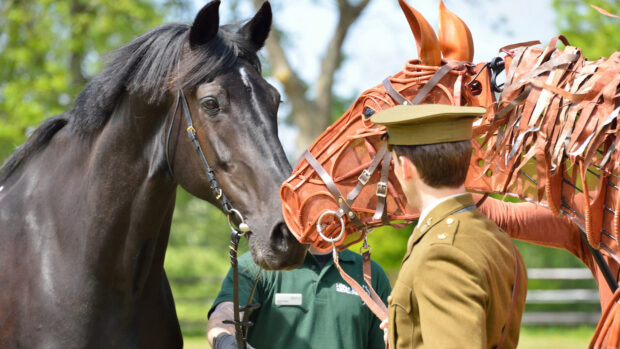The Horse Trust is urging owners to think before they take on a companion pony after the charity came to the aid of a Shetland with “crippling” laminitis and an emaciated filly.
Fifteen-year-old Walter arrived into the Horse Trust’s isolation unit earlier this month in a poor state.
“His feet show years of horrific bruising, his owner has obviously been struggling to meet his needs properly for some time,” said Horse Trust chief executive Jeanette Allen.
“Ultimately, he had to be signed over to the RSPCA and put into our care before this year’s spring grass really comes through. A farrier can’t have checked Walter’s feet for some time, or otherwise the laminitic changes would have been obviously apparent.”
Walter was suffering from other signs of neglect including a lice infestation, worms and a coat matted with urine.
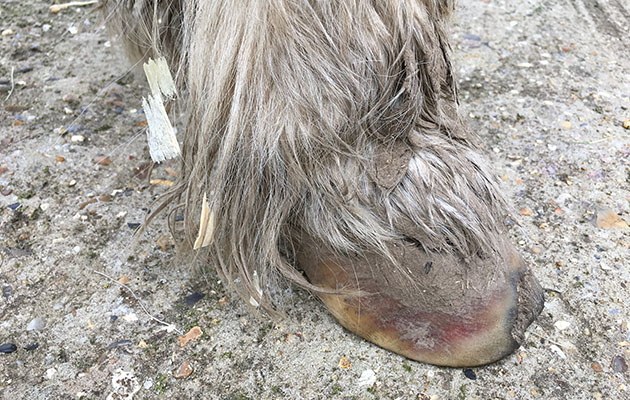
“He required significant pain relief for his first few days just to get over the journey to us,” said Ms Allen. “With a multitude of other problems on top of his laminitis, he will need very careful management for the rest of his life.
“There is no doubt that extremely friendly Walter will be a long-term project, first getting him comfortable and most importantly keeping him that way. X-rays show he has some pedal bone rotation in two feet and this looks old so he has had this excruciatingly painful problem for some significant amount of time.
“Now that we have his pain under control, he is far brighter and happier as a result and he is on a strict regime to get on top of his laminitis.”
Dizzy, a two-year-old filly cob is also in the charity’s isolation unit. She arrived from a different owner who was also not coping with caring for her properly.
Her body condition score of one out of five puts her at risk of developing re-feeding syndrome, a potentially fatal condition that can occur when severely malnourished horses are given access to food again, so she is also on a carefully controlled diet.
“Walter and Dizzy have become firm friends as Dizzy slowly gains weight and Walter slowly loses it,” added Ms Allen.
“Neither owner set out to intentionally neglect their ponies, they lacked either the knowledge or resources, to meet their needs properly. When advice was given it wasn’t or couldn’t be acted upon enough and in the end, both had to be signed over.”
Continued below…
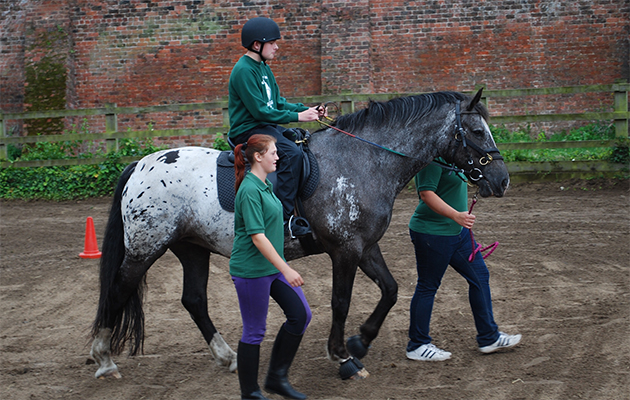
Striking mare to enjoy happy retirement after a decade’s service
‘We are delighted to have her join our Horse Trust family’

Police horses Iceni and Sawyer retire to The Horse Trust
Police horses from forces at opposite ends of the country have both retired to The Horse Trust's home of rest

Police horse retires to The Horse Trust after 15yrs service
Dickens (above left) has retired to The Horse Trust’s Home of Rest for Horses after working for Greater Manchester police
No equine is low maintenance
Ms Allen urged owners to think carefully before taking on a companion horse or pony.
“There is a common assumption that a Shetland pony would make a good, low maintenance companion for a thoroughbred or competition horse,” she said. “This is simply not the case unless managed very carefully. Different breeds have different needs.
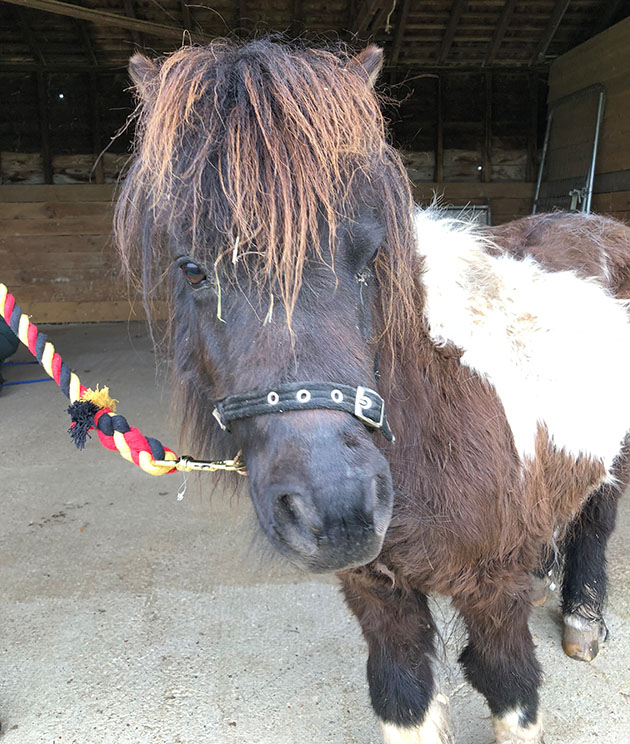
“Over feeding a Shetland pony is very easy to do, they evolved for the Shetland climate, not lush pastures and warmer weather. Owners must meet the needs of all their equines as individuals and must never place the needs of one, say the one they compete with, over its companion.
“While over feeding and over rugging are common problems with Shetland Ponies causing them to become overweight and potentially leading to joint problems and of course, laminitis; we have admitted numerous Shetlands and Miniature Shetlands that have been so neglected they have become emaciated, dehydrated and infested with parasites whilst the owners competition horse is given far greater care. No equine is low maintenance.”
For all the latest news analysis, competition reports, interviews, features and much more, don’t miss Horse & Hound magazine, on sale every Thursday


